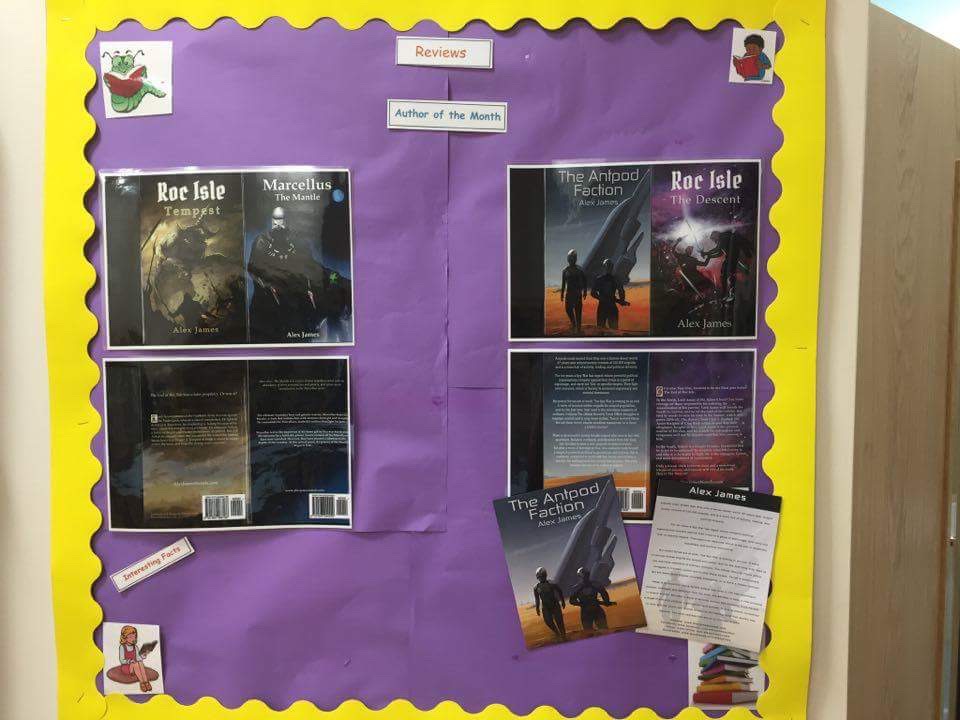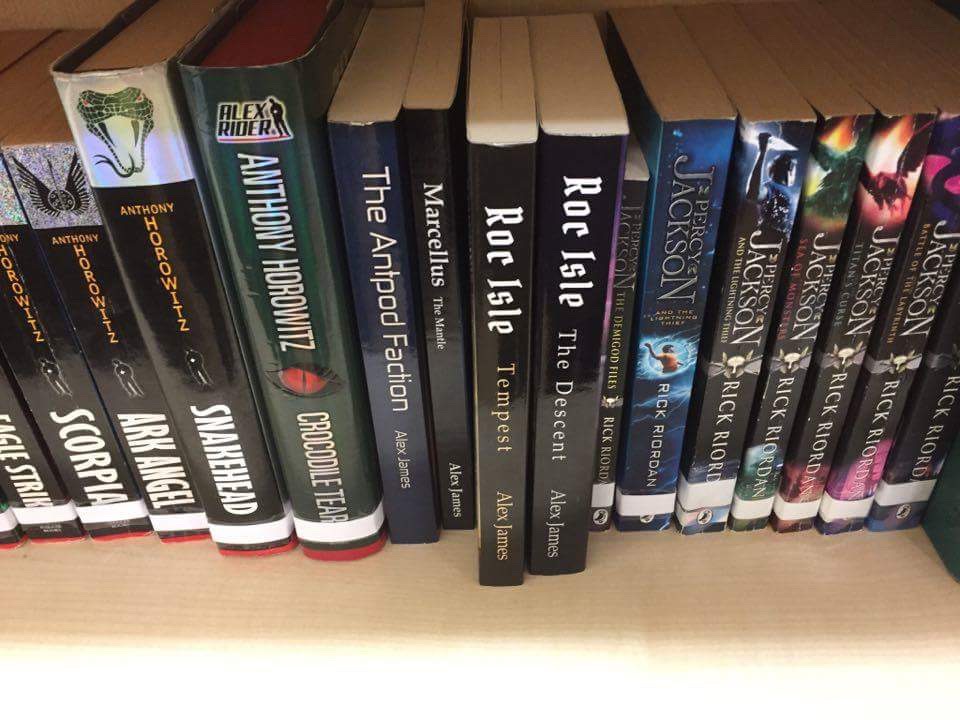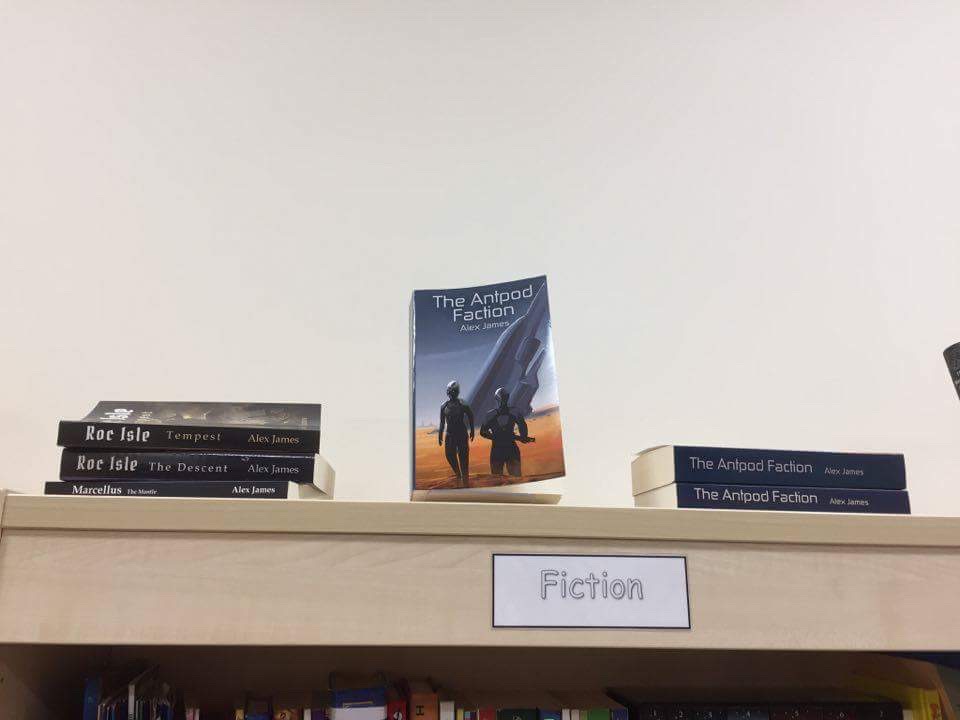On Saturday 21st May, I went to the Bradford Literature Festival to attend a panel about How to Get Published. I got the impression that the idea of the festival was to reach out and encourage new voices in under-represented groups. Indeed, there appeared to be a diverse mix of people in the audience, and I gathered from the questions asked that many seemed to be unpublished writers. Overall the event was 1h15 minutes long and went smoothly.
On the panel were two authors: Nikesh Shukla and Michael Stewart, who was also moderating. There were two publishers: Lisa Milton, executive of HarperCollins Harlequin Division, and Kevin Duffy, founder of independent publisher Bluemoose Books.
Upon the commencement of the panel’s talk, it was difficult to hear some of the speakers at first, but after somebody complained this was no longer a noticeable issue. As can be expected there was a lot of advice about dealing with rejection. If I recall correctly, Michael Stewart said something on the lines of rejection being a good thing because it can strengthen your submission. I agree with this to an extent, but let’s face it most literary agents do not provide feedback on your submission. You’re left in the dark wondering why you were rejected; indeed there might not have been anything particularly wrong or unappealing about your submission; perhaps your idea was not right for the literary agent’s subjective tastes or they were looking for something else. It would have been interesting to hear scheduled speaker Nelle Andrew’s (literary agent from PetersFraserDunlop) opinion on this, but she was missing from the panel for some reason.
There was a bit of good-natured back and forth between independent publisher Kevin Duffy and traditional publisher Lisa Milton. It was not unexpected, and some of the exchanges did remind me a bit of Labour and Conservative at Question Time, but thankfully it wasn’t that annoying. Kevin Duffy asked Lisa Milton about whether money influenced which books she selected for publication, but she cleared this up quite well by insisting that publishers always have to make a case for every book they choose before approaching sales/marketing teams.
A female writer demanded to know why she had been rejected by Kevin Duffy, to which he supposedly replied, “It wasn’t my cup of tea”. There was good advice given to her about the importance of getting people you trust to give you honest and constructive criticism/feedback. It must have been tough to hear this from the panel, and the panel maybe jumped to conclusions about the type of writer the lady was because she had written her manuscript in such a short time, which might have been unfair (even if what they said were things a lot of writers need to hear). However, in the defence of new writers, what the panel didn’t state was how difficult it is because not every writer has a network of trusted friends who are prepared to read through an entire novel for them and give them honest feedback. Finding “trusted, reliable, and honest” people who are willing to go out of their way to spend time to help isn’t easy. Perhaps some more profound advice on this could have been given, other than directing us to the latest Writers and Artists Yearbook. Furthermore, once new writers have written a story, they are told repeatedly to look back through it, but to know how to do this you need to understand or research about writing craft. Just telling new writers to look at it again with fresh eyes might not be enough. They might need to read about revision, take courses, or begin similar professions.
This sparked a debate on making sure your writing is ready for submission. Nikesh Shukla was very vocal here, and much of what he said made a lot of sense and chimed well with my experience of writing: you’ve got to develop your idea and message, and understand your work to make sure that you know what you’ve written. I agreed with his points. It’s no good having nearly one-hundred thousand words on a page if you don’t understand the significance of what you have written, why it’s unique, or if your planning and research might not be expressed the way you intend it to be. At this point, Lisa Milton concurred with, “You’ve got to know your whole story, even before you write it”.
Part of the point of the event was intended to encourage new writers, and break the cycle of mainstream publishing where ethnic minorities and women are often excluded. One lady spoke up about whether an agent or publisher needs to know the gender of the writer, which just goes to show the fear that if you are a female writer then you might have less chance of being represented by an agent or published. I don’t think you need to explicitly state your gender in submissions, and if you have a name that is neutral it might help, even though sometimes literary agents and publishers insist on you using your real name. However, I believe you have more chance of securing an agent if you are able to convince them that you know your subject well, and for this you might have to include who you are, background expertise, or achievements. Understandably this means you don’t have to mention your gender, but the recipient of your submission will likely have enough information to know who you are. Yet this doesn’t mean I think you should go out of your way to hide your gender if the need arises! I’m not knowledgeable about the submission process for Bluemoose Books, but all of this is contrary to what Kevin Duffy said about his only having the information about the book upon which to judge submissions. Regarding ethnic minority under-representation, somebody in the audience complained that successful books from African, Asian, or Indian writers typically have to have a strong current of magic, mysticism, or an overly strong protagonist to be taken on board by publishers rather than if they would submit a story being from the point-of-view of an ordinary person.
Nikesh Shukla was strong on these arguments as well, insisting that unless people from the aforementioned groups submit to agents and become a part of the industry, rather than distancing themselves from it by seeing the books currently on shelves as unrepresentative of their writing and perspectives, then the cycle will continue with similar authors being published. Lisa Milton said she encourages writers from different backgrounds, which is nice to hear, but unless Lisa Milton is starting initiatives to help encourage unrepresented groups or unless HarperCollins has open submission periods, then I’m afraid little will change. That being said, it was still nice of her and the panel to make time to come to Bradford and for an appearance, which does enable transparency between what could be seen as the bottom and top of writing and publishing.
At the end of the event, most stragglers wanted to speak to Lisa Milton, which I wasn’t surprised at, being the executive of a traditional publisher. I didn’t have any pressing questions to ask the panel, but a few ladies approached me and handed out leaflets about a new publishing company (Dandylion Publishing) they have launched, for which they are looking for new writers. What I liked about them was the motivation and drive they had, competing for the writers, some of whom only had eyes for the panel.
I happily took a leaflet, and looked up the Dandylion Publishing website. It just goes to show that despite new perspectives on the traditional route to publication; Writers and Artists’ Yearbook, submitting to an agent, rejections; there are other ways to publish and get maybe get feedback if we are open-minded to book publishing as a whole. It would have been very interesting if the ladies of Dandylion Publishing had been on the panel, and to hear what they would have to say about improving writing and preparing material “good enough” for publication. I say this as well because, though Nikesh Shukla had experimented with crowdfunding, presumably his non-traditional route, most of the panel seemed to channel the conversation in the traditional submitting to an agent route, as if all writers had been thinking about that exact route.
There can be opportunities at such events for aspiring and existing authors.
(@s are on Twitter.com)
Bradford Literary Festival – @BradfordLitFest and bradfordliteraturefestival.co.uk
Dandylion Publishing – @DandylionReads – dandylionpublishing.co.uk
Kevin Duffy – @Ofmooseandmen
Bluemoosebooks.com
Lisa Milton – @Lmrhjb
Nikesh Shukla – @nikeshshukla
Michael Stewart – @headspam



